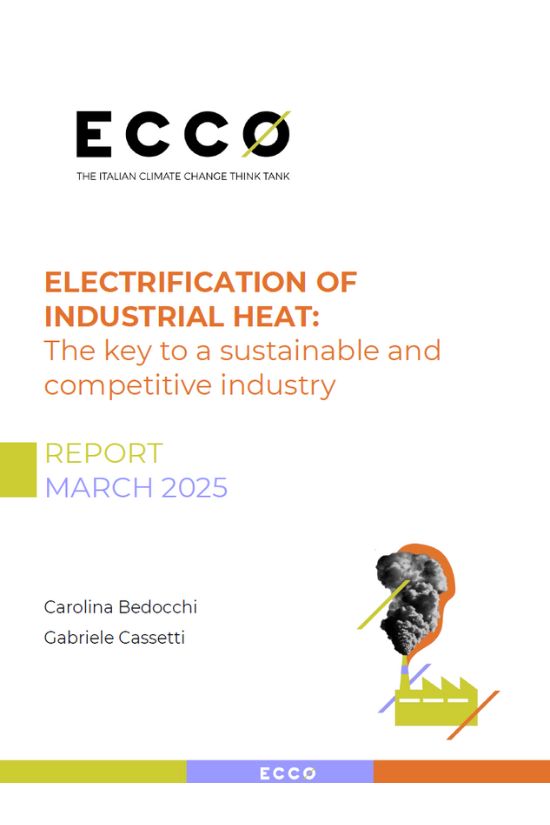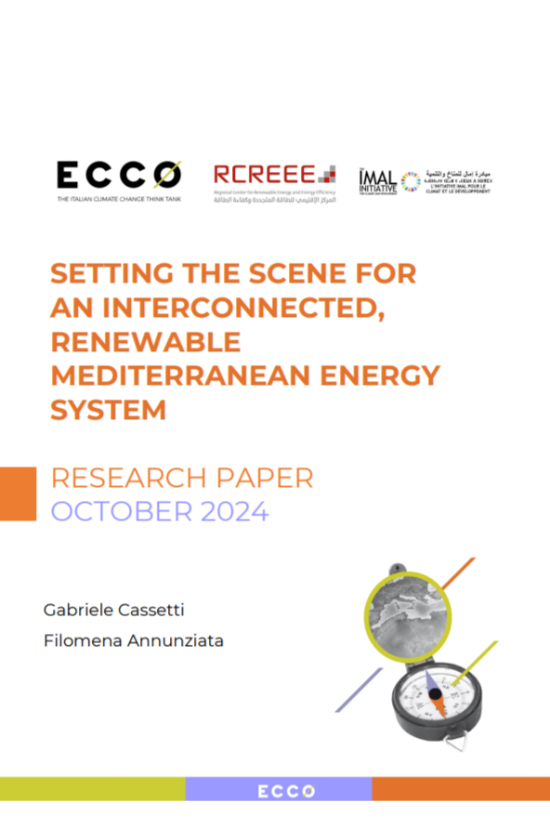Publications
Search
Filters
Authors
/ Alexandra Scott
/ Andrea Ghianda
/ Annalisa Perteghella
/ Beatrice Moro
/ Carolina Bedocchi
/ Caterina Molinari
/ Chiara Di Mambro
/ Chiara Mariotti
/ Chloe Pagliaro
/ Costanza Scano
/ Davide Panzeri
/ ECCO think thank
/ Eleonora Cogo
/ Federico Tassan-Viol
/ Filomena Annunziata
/ Francesca Andreolli
/ Francesca Bellisai
/ Gabriele Cassetti
/ Giovanni D'Amico
/ Giulia Colafrancesco
/ Giulia Giordano
/ Giulia Novati
/ Giulia Signorelli
/ Ilaria Mazzocco
/ Lorena Stella Martini
/ Luca Bergamaschi
/ Luca Iacoboni
/ Mario Noera
/ Marta Lovisolo
/ Massimiliano Bienati
/ Matteo Leonardi
/ Matteo Viola
/ Michele Governatori
/ Nicolas Drago
Decarbonising the industrial sector requires a targeted approach, with solutions that in most cases must be tailored to meet the needs of each industry. Amongst these, electrification appears to be the most competitive option and the only one capable of aligning decarbonisation objectives with energy security needs. This report presents the results of a specific feasibility study on the electrification of two key sectors in the Italian manufacturing industry: food and textiles.
Today, the Mediterranean region's capacity is 90 GW for solar PV and 82 GW for wind . However, the solar and wind potential is estimated at more than 3 TW, meaning that the development of renewables falls short of realising their full potential.
Decarbonising the industrial sector requires a targeted approach, with solutions that in most cases must be tailored to meet the needs of each industry. Amongst these, electrification appears to be the most competitive option and the only one capable of aligning decarbonisation objectives with energy security needs. This report presents the results of a specific feasibility study on the electrification of two key sectors in the Italian manufacturing industry: food and textiles.
Today, the Mediterranean region's capacity is 90 GW for solar PV and 82 GW for wind . However, the solar and wind potential is estimated at more than 3 TW, meaning that the development of renewables falls short of realising their full potential.

